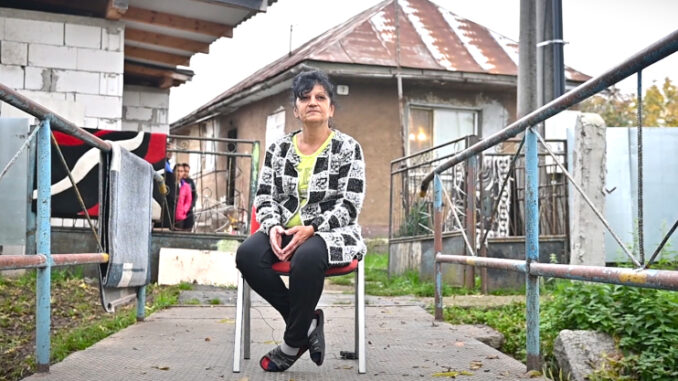
The Ombudsperson of Slovakia, Robert Dobrovodský, has issued a decision condemning Slovak police officers who brutalised and tortured a Romani family during a police raid in Milhosť in 2019. The decision finds the officers’ actions to have been disproportionate, constituting humiliating and degrading treatment, in violation of the European Convention on Human Rights, Article 3 (prohibition of torture). The Ombudsperson has written to the Head of the Regional Directorate of Police in Košice to recommend he take disciplinary sanctions against the officers and order them to undergo human rights training in relation to the use of coercive measures. He also recommended the use of body-cameras which would monitor police actions. The decision came in response to a legal complaint submitted by the European Roma Rights Centre (ERRC).
The ERRC’s President, Đorđe Jovanović, said: “How many more cases of police brutality against Roma will there be before Slovakia wakes up? The frequency of these hate crimes is so high, this is not a question of evidence. It is a question of when the previous Ombudspersons’ numerous recommendations to create a truly independent police inspection service will be taken seriously. Truly independent means that the investigation of police officers’ behaviour is not carried out by other police officers. It is absurd that right now in Slovakia, police officers are responsible for investigating other police officers when they illegally harass, beat, and torture citizens.”
The incident occurred on the 23 July 2019, as reported by the ERRC on 1 August 2019. Two Romani young men, aged 18 and 17, were arrested and severely beaten by police officers after they were detained at a local pub. Two other women, including the mother and aunt of one of the men, were also physically assaulted after officers entered their home and attacked the family.
The officers detained the two young Romani men, put them in a police car, where one was beaten for the duration of the journey to the local police station in Čaňa. One of the young men described how “they took us into the car and started hitting us all the way there.” At the station, he and the other “stood for three hours. I lay on the ground because I could no longer stand up; I was sitting in the middle between two of them and they hit me everywhere. The police officers also spat in my mouth.”
The young men were not released until the next day. Meanwhile, the police returned to Milhosť to arrest three Romani women at their home (the mother, the aunt, and the sister of one of the young men). An officer dragged one of the women by her hair to a bridge outside her house where he beat her and broke a finger on her hand. Another of the woman had a gun pressed against her forehead by a police officer. The three female relatives were detained and brought to the police station in Čaňa where they were locked in the men’s toilets and a cleaning cupboard, instead of the questioning rooms. One of the women suffered further violence at the police station. Both were also released the next day.
The ERRC is currently representing the two Romani men before the Constitutional Court of Slovakia, and the two the Romani women who were assaulted by the police before the European Court of Human Rights. The Bureau of Inspection Service did not find any of the police officers guilty of misconduct. Criminal investigations in relation to the police intervention with the two young Romani men were terminated after the various counts of violence were dismissed. The investigation only referred a single count of an officer slapping one of the young men to the regional directorate to review for possible disciplinary liability (because it was not viewed as a criminal offence). It is not known if the officer in question faced any disciplinary actions from the regional directorate. The investigation into the police intervention at the home of the Romani women was suspended, despite the victims being able to positively identify the police officers who had beaten them.
Video interviews with the two Romani women represented before the European Court are available are available here: interview with Katarína, interview with Helena.
This press release is also available in Slovak.
Redaktionen
redaktionen@dikko.nu
Att vara en oberoende tidning kostar pengar så vill du hjälpa oss med att betala vårt fika får du gärna swisha en slant till 123 242 83 40 eller bg: 5534-0046
Vill du annonsera eller sponsra, synas eller höras i våra media?
Kontakta oss på redaktionen@dikko.nu
eller ring 0768 44 51 61
IBAN: SE19 9500 0099 6042 1813 4395
BIC: NDEASESS




